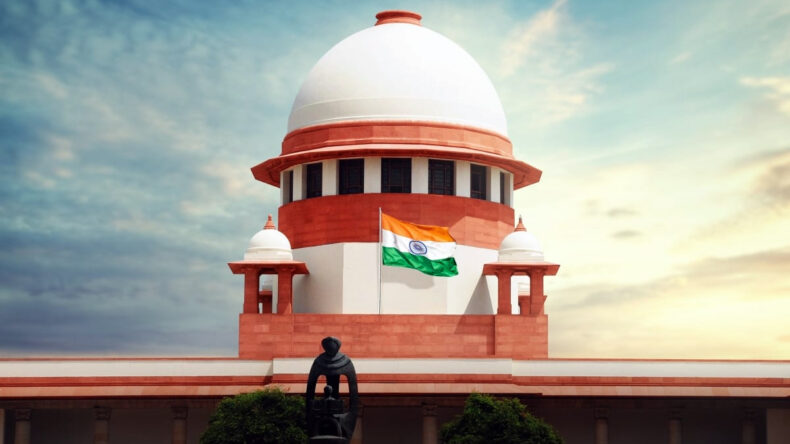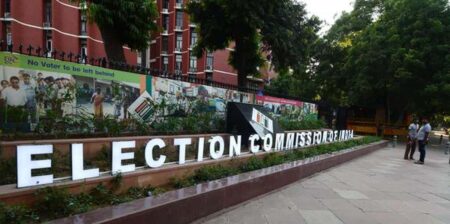On Monday, the Supreme Court issued notice to the accused in the Deoghar Airport case. This case is filed as a petition challenging the Jharkhand High Court’s order which quashed the FIR against MPs Nishikant Dubey, Manoj Tiwari and others involved. This petition is filed by the State of Jharkhand.
The petition was listed before the division bench of the supreme court composed of Justice Abhay Oka and Sajay Karol. The case involves the question of the intricacies of the Indian Penal Code of 1860 and the Aircraft Act, of 1934. The High Court had held that the offences listed under the IPC are not attracted due to the applicability of the Aircraft Act, of 1934.
Background
The petitioner has approached this court in an appeal against the order of Jharkhand High Court which quashed an FIR against the respondents. The FIR was lodged on the facts that the respondents have forcibly entered the Air Traffic Control office in Deoghar. Thereafter, the respondents pressurized the staff to grant clearance to the chartered flight for take-off. The respondents, as alleged, had landed there to visit a victim’s family in the Dumka District. Thereafter, an FIR was lodged against the aforesaid individuals under the sections of the Indian Penal Code and Aircraft Act.
Against this case, the high court, while quashing the FIR, observed that According to the Aircraft Act, 1934, which is a full code in and of itself, the complaint regarding such cases may only be made by the relevant authority, which was not done in the actual case. The Aircraft took off after receiving proper permission from the ATC.
Thereafter, the court also noted that being a case under the special act, the general provisions of the Indian penal code will not be applicable. The court also noted that when examining the aforementioned Rule (Schedule II Rule 4 of The Aircraft Rules, 1937), it is abundantly evident that flights may depart before the half-hour before sunrise and the half-hour after dusk. It is not true that the flight took off without receiving any authorization from the ATC. If the flight had taken off without receiving any ATC clearance, the situation would have otherwise…The question of whether or not the petitioners—who are leading the advisory committee (Dubey is the Chairman of the Deoghar Airport Advisory Committee)—are subject to prosecution remains once the ATC permission has been obtained. Without a doubt, no.
The court also noted that there are conditions in such conditions. The condition such as no Court may exercise jurisdiction over a matter under the said Act without first receiving approval in writing from the Director General of Civil Aviation, Director General of the Bureau of Civil Aviation Security, or Director General of the Aircraft Accidents Investigation Bureau, as applicable. Therefore, the F.I.R. itself cannot be maintained when the complaint must be made in accordance with a sanction as described in that Act.
The challenge before the Supreme Court
Challenging the above order, the petitioner approached the supreme court. The counsel for the state of Jharkhand argued that the high court had reached a wrong conclusion. Further, it is asserted that the offences under Sections 10 and 11 of the Aircraft Act of 1934 are distinct from and separate from those under the IPC provisions. He further argued that when safety and security laws were broken, risking people’s lives and the security of airports, the Aircraft Act could not prevail over the IPC.
It is further contended that the actions of the respondents have endangered the life of others by their actions. The respondents must uphold the highest quality by abiding by laws and regulations because they are public figures.













